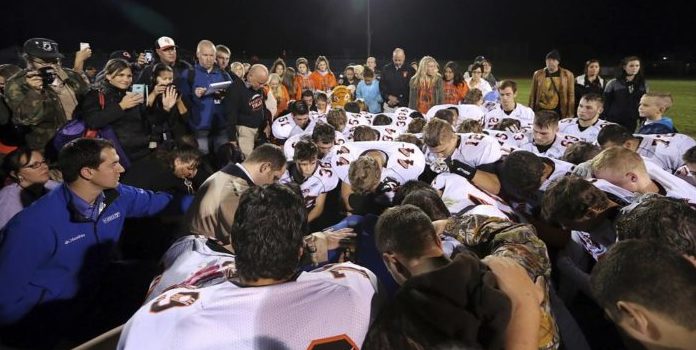(Tony Sifert, Headline USA) The Supreme Court heard oral arguments Monday in a religious liberty case involving a public high school football coach at who led a “brief, quiet prayer” at the 50-yard line after each of his games.
Coach Joseph Kennedy was placed on administrative leave by the Bremerton School District in October 2015 because, according to the district, he refused “to stop holding public prayers at the 50-yard line,” reported the Associated Press.
Kennedy disputed the claim, and argued that he was “fired for briefly and privately praying at midfield.”
According to SCOTUSblog, a letter from the school to Kennedy argued that any student prayers should be “entirely and genuinely student-initiated” and that Kennedy’s motivational speeches had to be “exclusively secular” because of his role at a public school.
“The court’s conservative majority seemed sympathetic to the coach while its three liberals seemed more skeptical,” the AP reported. “The outcome could strengthen the acceptability of some religious practices in the public school setting.”
Oral argument in the case lasted two hours, with justices considering hypothetical situations in which a coach leads “an after-school religious youth group at his home” or waves a Ukrainian flag at midfield at halftime.
Kennedy is being represented by Paul Clement of the First Liberty Institute, and is opposed by Richard B. Katskee of Americans United for Separation of Church and State, which represents the school district.
“The Bremerton School District did the right thing to protect students’ religious freedom,” Katskee said in a statement. “No student should feel pressured to pray to play . . . the law is clear that teachers and coaches cannot lead public-school students in prayer.”
Kelly Shackleford, president of the First Liberty Institute, disagreed.
“No teacher or coach should lose their job for simply expressing their faith while in public,” Shackelford said.
“By taking this important case, the Supreme Court can protect the right of every American to engage in private religious expression, including praying in public, without fear of punishment.”

